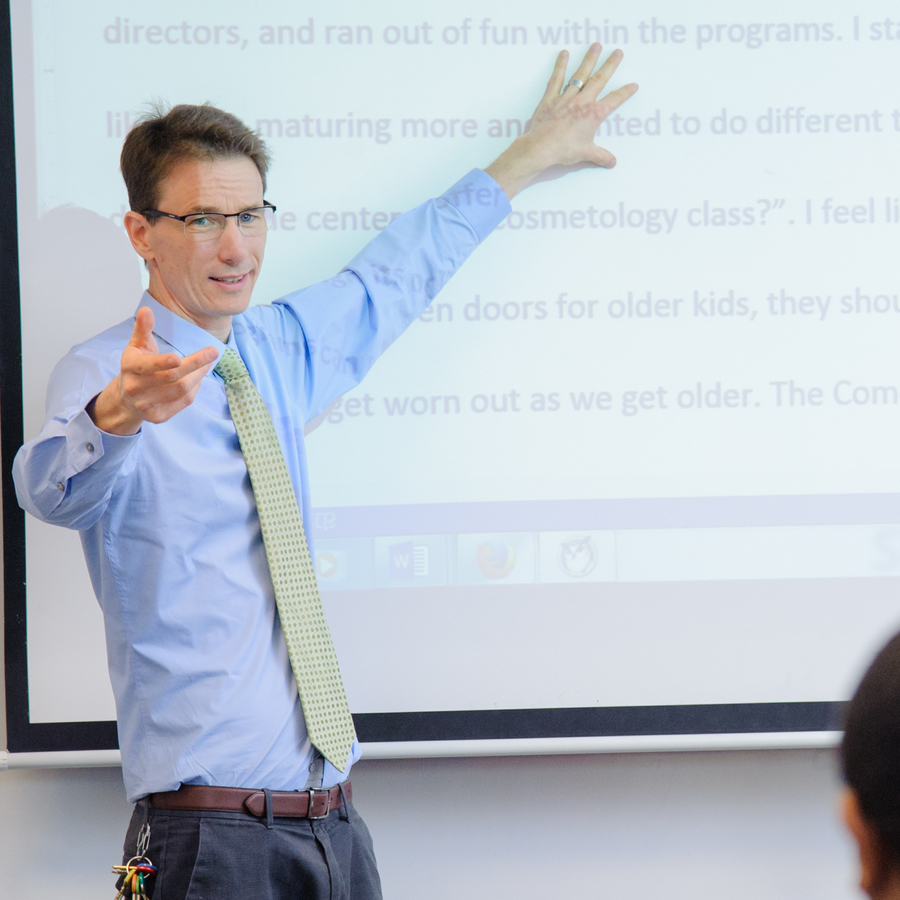Each fall, Parkland College recognizes a teacher who is doing an exceptional job delivering their course content, engaging students in learning, and continuing to grow through professional development activities.
2025 Parkland Teaching Excellence Award Recipient
Steven Rutledge

The PCA Professional Development Subcommittee for Faculty chose English professor Steven Rutledge for the 2025 Teaching Excellence Award. He has taught reading and writing at Parkland College since 2007.
Professor Rutledge has worked with English groups in the state and with local high schools to create Transitional English classes. These classes help students get into college-level English.
He has also helped improve the Writing Lab and Learning Commons. He created videos about reading and writing that other teachers use. His students say the skills they learn in his classes help them succeed in their other classes.